You Dont Own Me !
Site Specific, Found Material, Sa Ladakh, Ladakh, 2023
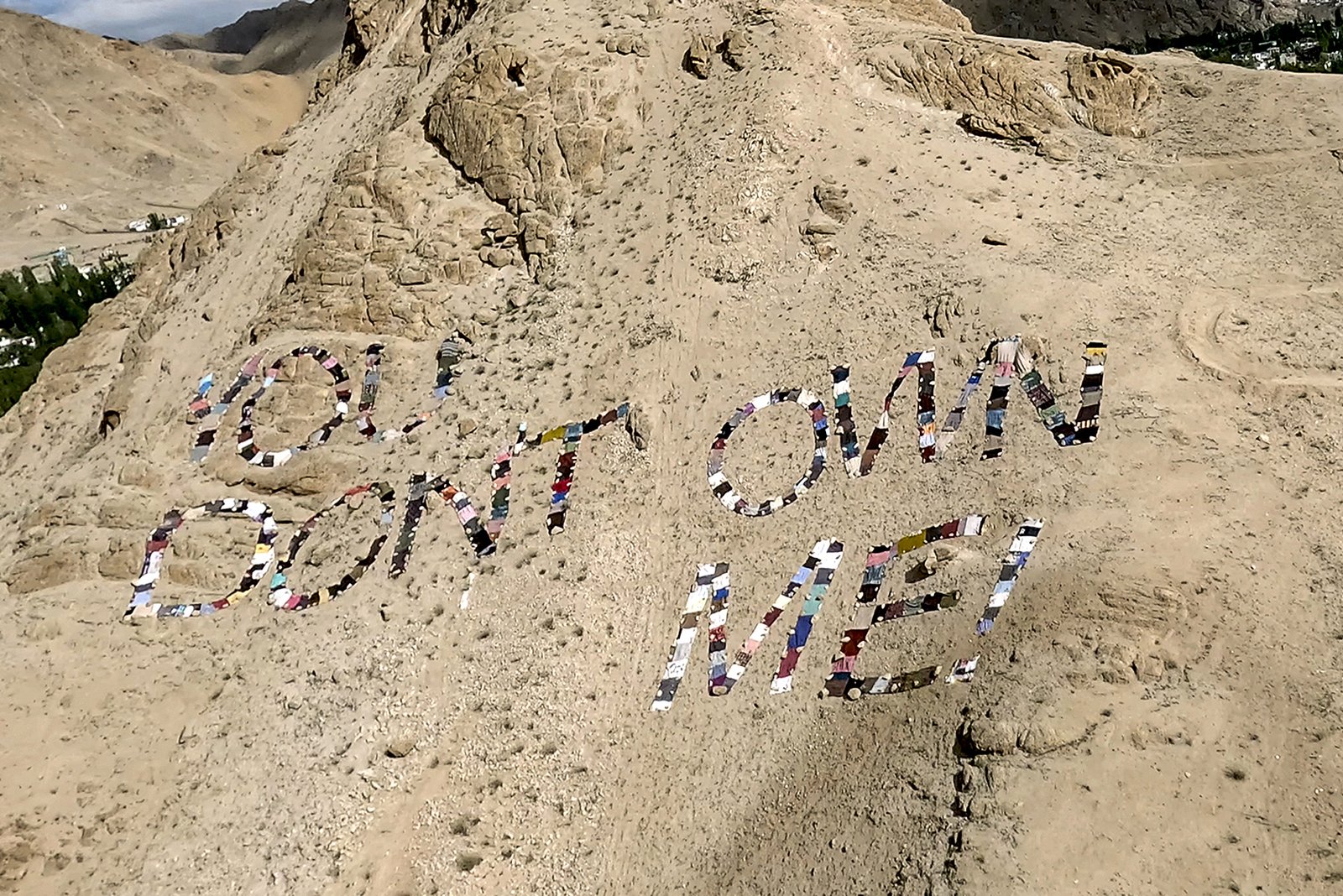

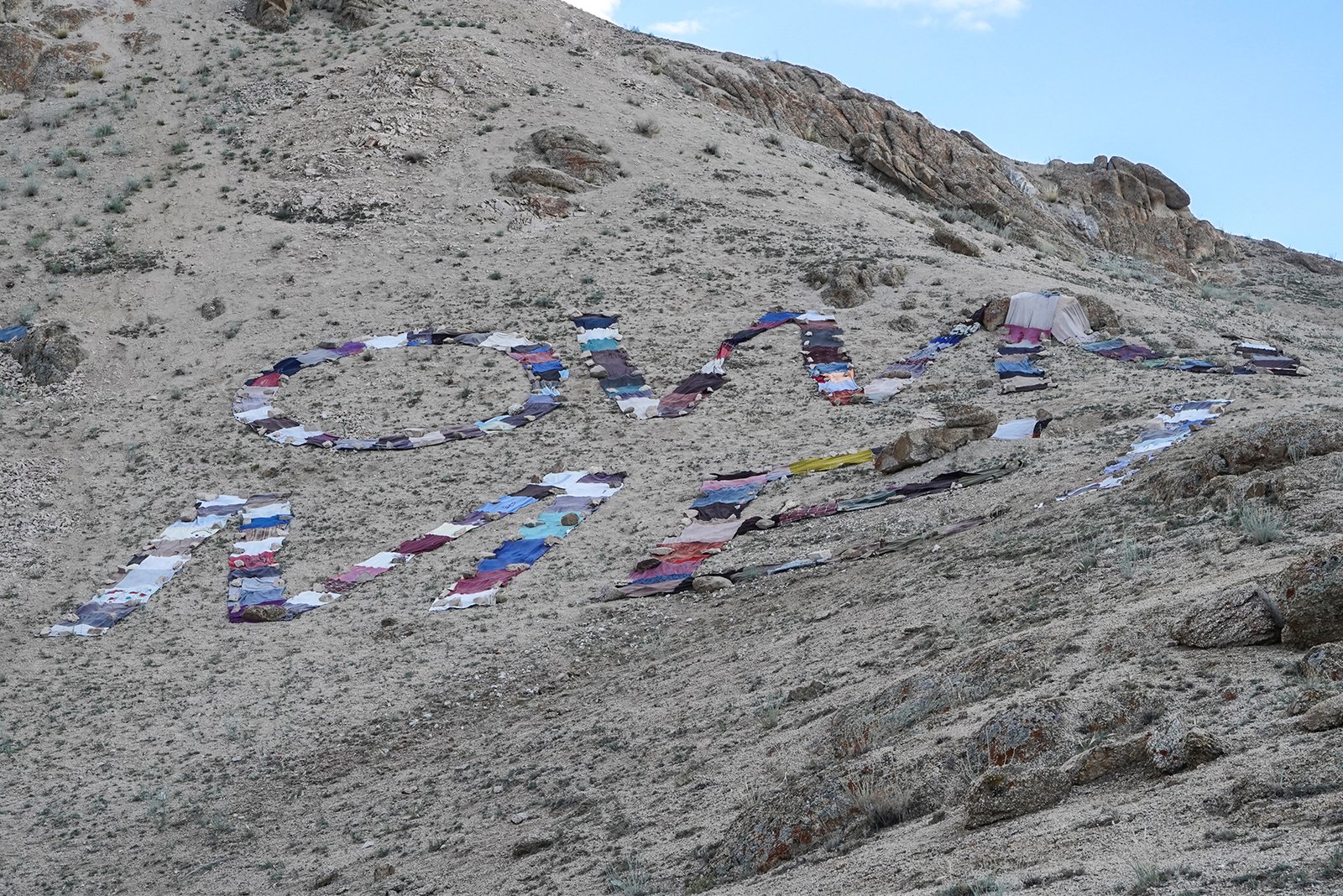
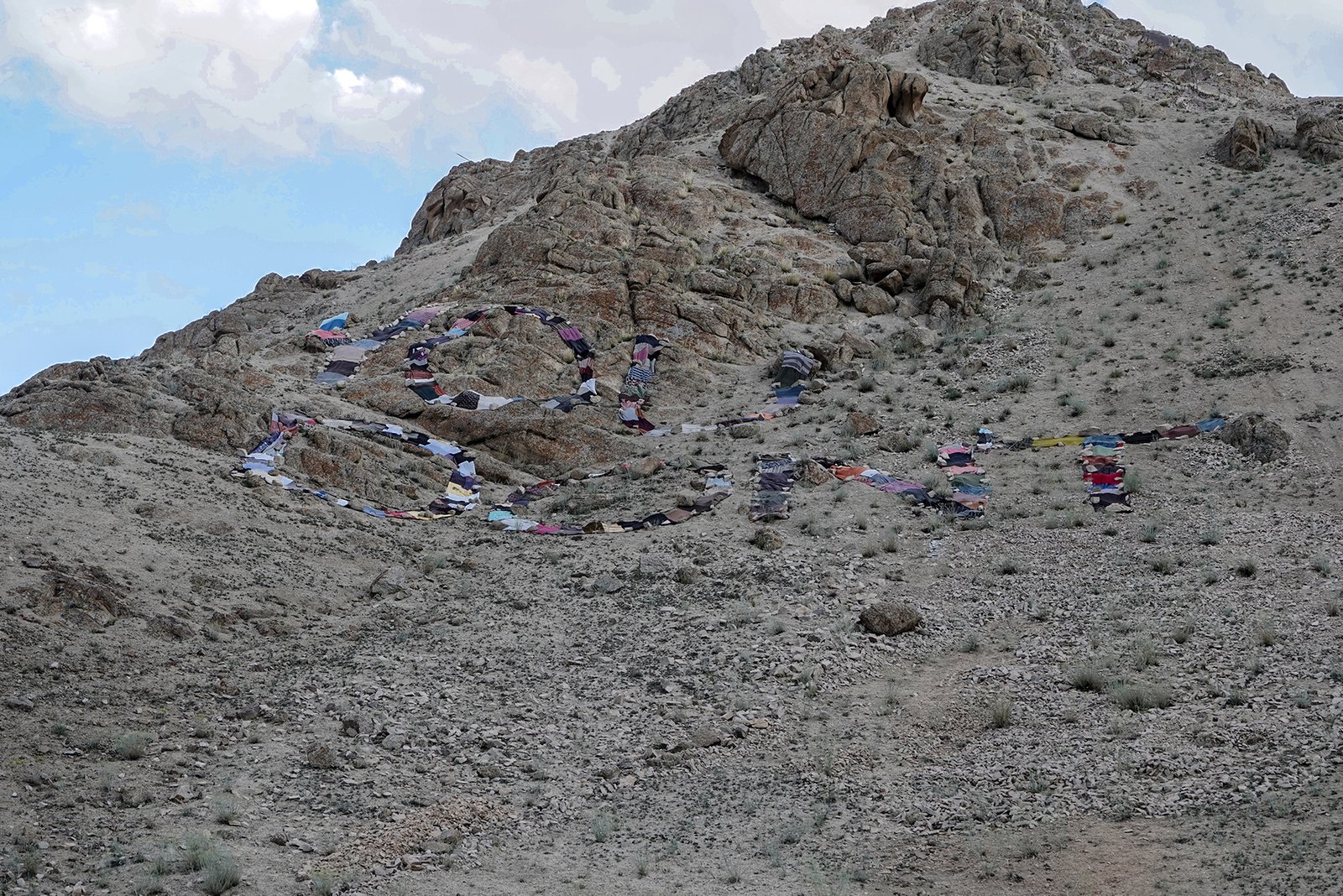


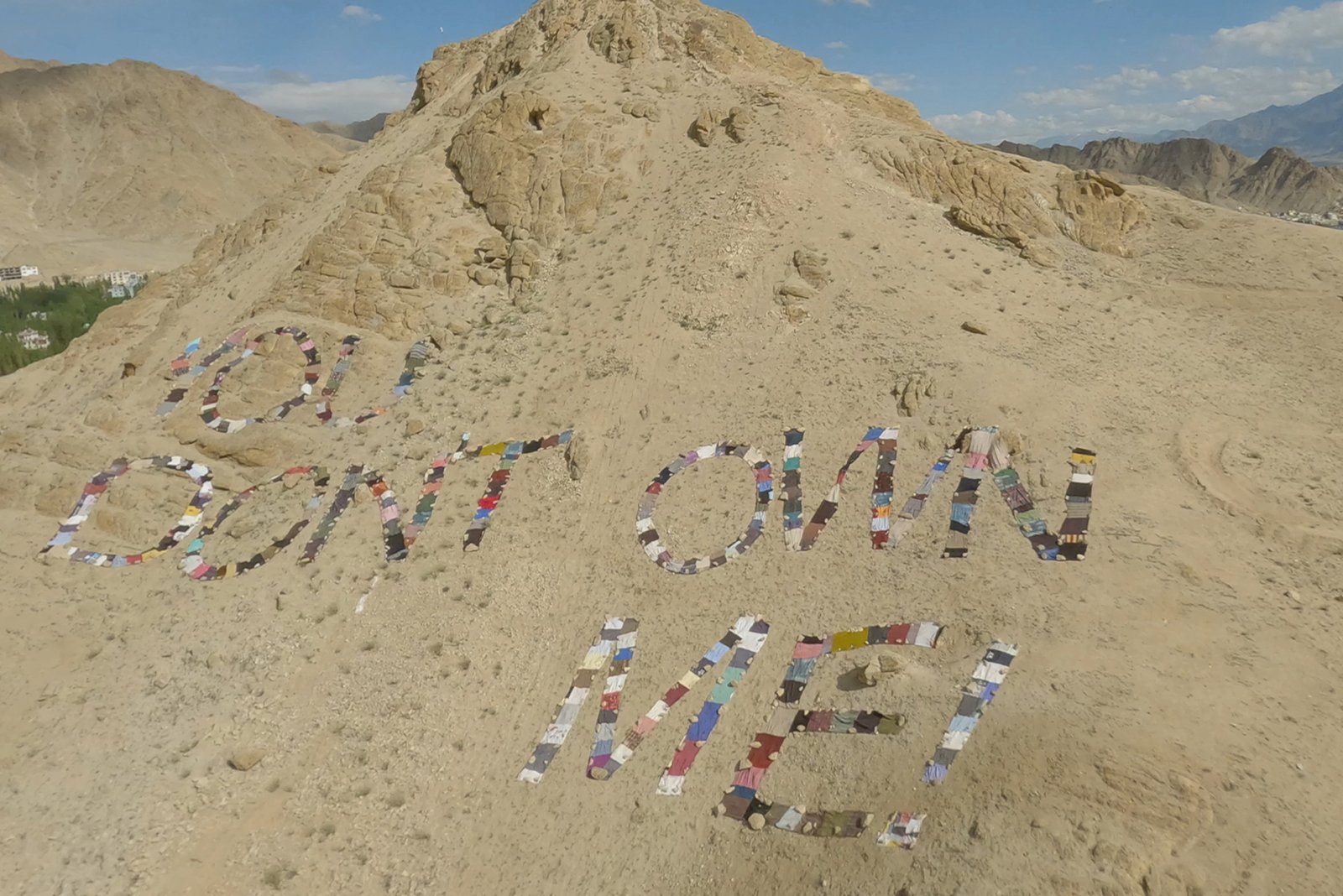
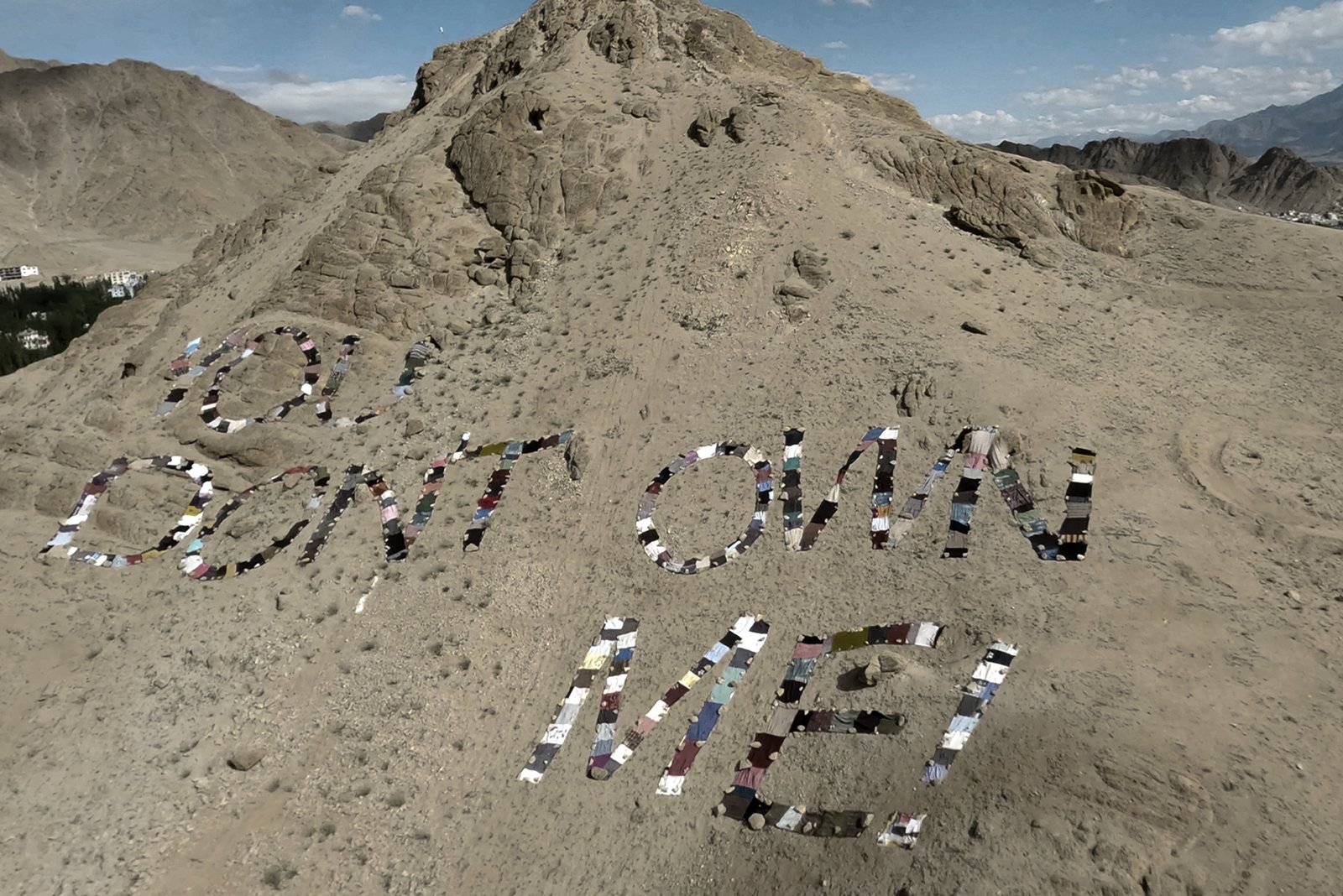
Previous
Next
"You Don't Own Me!" is a powerful phrase that stirs emotions, reminding us of the struggles we face in the midst of oppression and our yearning to break free from the clutches of our oppressors. It serves as a rallying cry against the injustices inflicted upon individuals and communities, resonating in various contexts, including the present political and cultural scenario. As we venture into the highest altitudes of the Himalayas, we find a profound setting to amplify this message. Here, nature stands as a silent witness to the environmental events unfolding worldwide, where it appears to be reclaiming its power. In this majestic landscape, nature humbly yet assertively speaks to its oppressors – us humans – declaring that we do not own it.
The Himalayas, with their timeless wisdom, reveal that our existence on Earth is transient, like a tent pitched on its surface. In the pursuit of giving voice to nature, I have chosen a symbolic approach. By using discarded and found clothes, the artwork weaves together the stories of countless individuals who once wore these garments. These clothes carry the memories, experiences, and presence of their wearers, forming a collective voice that emerges from their absences. The work becomes a tribute to humanity's interconnectedness, subtly bringing together diverse backgrounds and experiences to resonate with nature's plea. However, while the concept of using discarded clothes to represent the collective human experience is captivating, the link between this approach and the theme of voicing nature requires careful consideration. The connection could be further strengthened through deliberate storytelling and context, allowing viewers to grasp the profound implications of the artwork. Moreover, in interpreting nature's stance through anthropomorphism, we must tread cautiously. Nature, in its vastness and complexity, transcends human emotions or desires. It operates through natural processes that are beyond our control. the work emphasizes the urgency of our responsibility as custodians of the environment.
You Dont Own Me !
Site Specific, Found Material, Sa Ladakh, Ladakh, 2023








Previous
Next